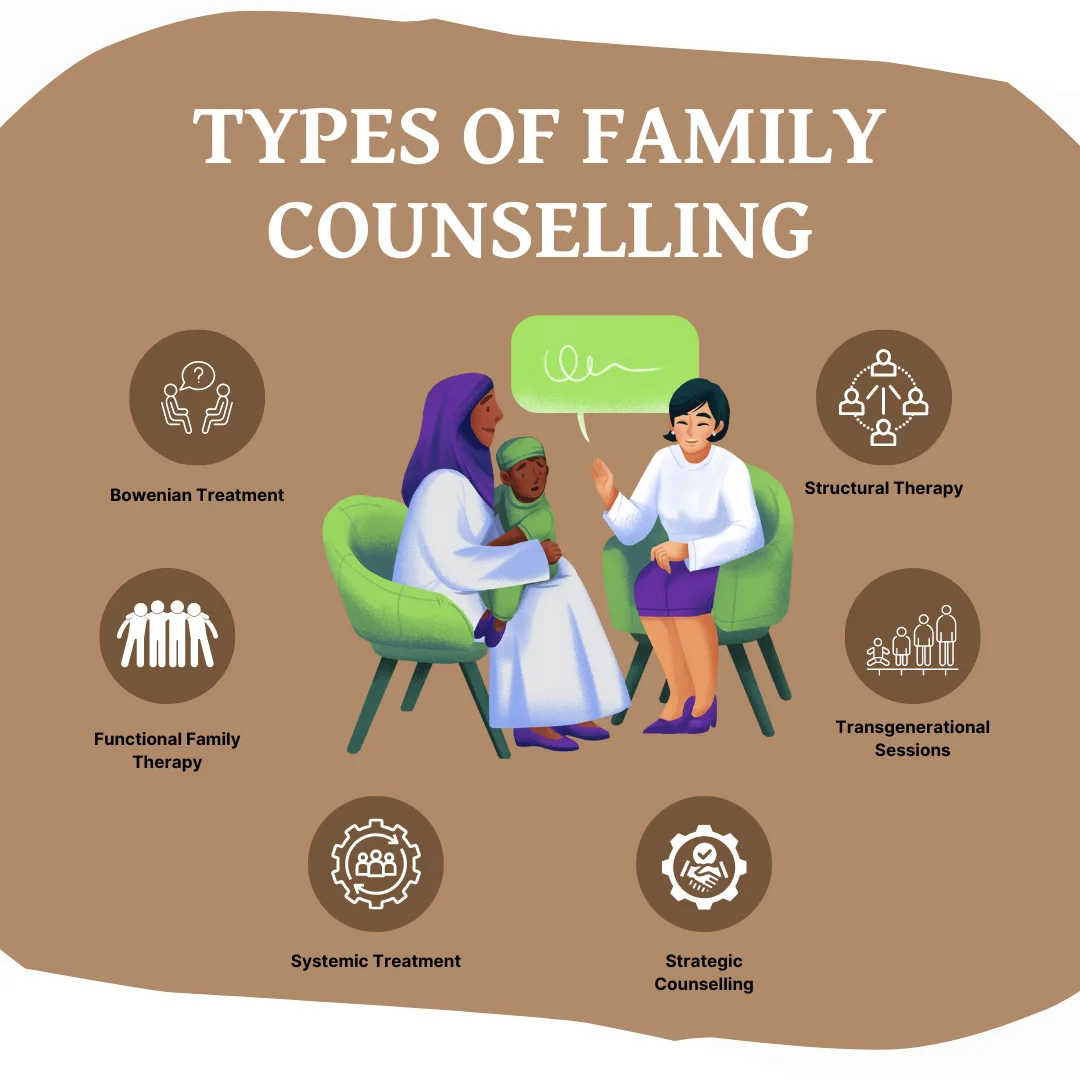Discovering the Benefits of Virtual Therapy in Modern Mental Health Treatment
The increase of virtual therapy notes a significant shift in psychological healthcare. It provides improved ease of access, allowing people from diverse backgrounds to look for aid without geographical constraints. Versatility in organizing fits differing way of livings, while the comfort of home can foster visibility. The ramifications of these adjustments prolong past mere convenience. The progressing landscape of therapy elevates essential questions concerning its long-term results on client involvement and treatment results.
Enhanced Access for All
Although typical therapy usually presents obstacles such as geographical area and scheduling problems, virtual therapy substantially boosts accessibility for individuals looking for psychological health support. By eliminating the need for physical travel, virtual therapy allows customers from remote locations or those with wheelchair obstacles to get in touch with certified professionals. This setting of therapy can get to underserved populations that might lack regional psychological health resources, thus attending to variations in access to care. In addition, virtual systems can accommodate diverse needs, offering solutions in numerous languages and accommodating various cultural backgrounds. Customers can engage with a broader series of specialists, offering them with alternatives that line up with their specific requirements and preferences. This enhanced accessibility promotes an extra inclusive setting, enabling people to seek assistance without the stigma usually connected with in-person visits. In general, virtual therapy represents a considerable advancement in making mental wellness treatment more accessible to all.
Adaptability in Organizing Procedure

As virtual therapy remains to gain traction, its inherent versatility in organizing sessions proves to be a substantial advantage for several people. Unlike traditional in-person therapy, virtual therapy allows clients to choose session times that ideal fit their personal and professional commitments. This adaptability suits those with requiring work routines, household obligations, or various other dedications that can make participating in physical consultations testing.
Moreover, clients can easily reschedule or adjust their sessions as required, decreasing the stress and anxiety related to rigid consultation systems. The availability of various time slots throughout the week, including evenings and weekends, even more improves ease of access. This versatility not just motivates uniformity in participation yet additionally cultivates a higher commitment to the restorative process. Ultimately, the versatility in scheduling sessions represents a transformative change in psychological healthcare, encouraging individuals to prioritize their health without sacrificing other aspects of their lives.
Convenience of a Familiar Setting
The convenience of an acquainted setting significantly boosts the effectiveness of virtual therapy for numerous customers. Engaging in therapy from the security of their own homes allows people to feel more comfortable, reducing anxiety that may come with traditional in-person sessions. This familiarity can facilitate open communication, enabling customers to express their thoughts and sensations a lot more openly.
Additionally, the visibility of individual items and the ability to control their surroundings can add to a sense of safety and leisure. Clients usually report that remaining in a comfortable space enables them to focus more on the restorative procedure instead of the setting itself.
In addition, the casual nature of virtual sessions can help dissolve obstacles that might exist in a conventional workplace environment, cultivating a deeper link with therapists. Overall, the convenience of familiar surroundings plays a vital role in enhancing the therapeutic experience and effectiveness for many people seeking psychological health assistance.
Larger Array of Therapeutic Alternatives
A bigger range of therapeutic alternatives appears via virtual therapy, enabling customers to accessibility different techniques that may not be practical in typical settings. This versatility enables people to explore varied techniques such as cognitive-behavioral therapy, mindfulness techniques, art therapy, and even specialized treatments like trauma-informed treatment or dialectical behavior therapy.
Clients can pick from a broader range of specialists, consisting of those who specialize in niche areas or specific populaces, boosting the possibility of discovering an appropriate match. Virtual systems often supply access to team therapy sessions, assistance neighborhoods, and workshops that may be geographically inaccessible otherwise.
This selection equips customers to participate in their recovery procedure according to their special preferences and demands, potentially enhancing inspiration and dedication to treatment. Therefore, the landscape of mental health treatment comes to be much more inclusive and versatile, accommodating a bigger selection of private experiences and challenges.
Lowered Preconception Surrounding Therapy
Accessing therapy through virtual systems adds to a considerable decrease in the stigma generally connected with psychological healthcare. By supplying a discreet and personal setting, virtual therapy enables people to look for help without the anxiety of being judged or determined. This anonymity interest those who might or else think twice to seek in-person therapy because of social perceptions surrounding mental health.
Moreover, as the prevalence of virtual therapy rises, it stabilizes the discussion around psychological health, making it a more appropriate component of day-to-day life. People commonly feel a lot more comfortable reviewing their experiences online, promoting openness and lowering feelings of seclusion. The availability of these solutions additionally urges a more comprehensive group to engage with mental health and wellness resources, promoting a society of support as opposed to pity. Inevitably, the surge of virtual therapy plays a vital duty in improving perspectives in the direction of looking for assistance, adding to an extra accepting culture pertaining to psychological wellness obstacles.
Cost-Effectiveness and Price

Minimized Session Prices
Numerous people looking view website for psychological health assistance locate that virtual therapy significantly lowers session expenses compared to typical in-person choices. The elimination of traveling expenditures and time off job often adds to overall savings. In addition, several virtual specialists supply competitive rates because of reduced overhanging costs associated with keeping a physical office. This shift in expense permits customers to accessibility top quality psychological health and wellness services without the monetary stress that might come with standard therapy. For many, this price allows much more frequent sessions, which can boost therapy results. As a result, virtual therapy not only democratizes access to mental health and wellness care but likewise offers a sustainable monetary design that aligns with clients' budgets, making psychological health assistance more achievable for a bigger audience.
Broadened Access Options
While traditional therapy often offers logistical barriers, virtual therapy considerably expands accessibility options for individuals looking for mental healthcare. By eliminating the demand for travel and permitting adaptable organizing, virtual therapy accommodates diverse way of lives and commitments. This availability is particularly helpful for those in remote locations or with movement difficulties. Additionally, the cost-effectiveness of virtual therapy reduces financial stress, making psychological wellness services extra obtainable. Several platforms use tiered pricing or sliding range costs, advertising cost. Insurance companies progressively recognize virtual therapy, more enhancing its Learn More monetary access. In general, virtual therapy not just widens the range of who can receive treatment however likewise addresses economic barriers, making mental health and wellness support a lot more comprehensive and attainable for all.
Improved Connection of Treatment
Improved connection of treatment becomes a significant benefit of virtual therapy in contemporary psychological healthcare. This method permits clients to keep consistent interaction with their therapists, despite geographical obstacles or scheduling problems. low cost therapy. The adaptability of virtual sessions promotes normal check-ins, which are essential for keeping track of development and adjusting treatment prepares as needed
Furthermore, electronic health documents and telehealth platforms facilitate seamless information sharing among treatment suppliers. This interconnectedness assures that all professionals included in a client's treatment are updated on therapy advancements, resulting in even more collaborated and reliable interventions.
People usually experience reduced stress and anxiety and boosted engagement due to the comfort of accessing therapy from familiar atmospheres. Such ease of access enhances adherence to treatment programs, eventually boosting end results - relationship therapy. To sum up, virtual therapy not only bridges spaces in mental wellness solutions however also strengthens the connection of treatment, a crucial component of effective healing relationships
Frequently Asked Questions
Just How Does Virtual Therapy Make Certain Privacy and Personal Privacy for Customers?
The present inquiry addresses the measures virtual therapy employs to shield client discretion. Utilizing encrypted platforms, safe and secure logins, and conformity with policies like HIPAA, virtual therapy guarantees that sensitive information continues to be exclusive and unattainable to unauthorized people.
Can I Change Therapists Quickly in Virtual Therapy?
Changing therapists in virtual therapy is generally straightforward. Customers can connect their need for a change via the platform, allowing for adaptability in discovering a better suit without the logistical challenges of in-person appointments.
What Innovation Do I Required for Virtual Therapy Sessions?
To join virtual therapy sessions, an individual usually needs a trustworthy net connection, a computer or smart device with an electronic camera and microphone, and access to a secure video conferencing platform defined by their specialist.

Are Virtual Therapy Procedure as Effective as In-Person Sessions?
Current studies suggest that virtual therapy sessions index can be similarly efficient as in-person sessions, relying on the person's preferences and circumstances. Variables such as convenience and accessibility may enhance the overall healing experience for some clients.
What Should I Do if I Experience Technical Issues During a Session?
If technical problems occur throughout a session, one ought to comfortably connect the trouble to the therapist, effort to reconnect, or button to a backup technique. Patience and adaptability are vital in managing these interruptions.